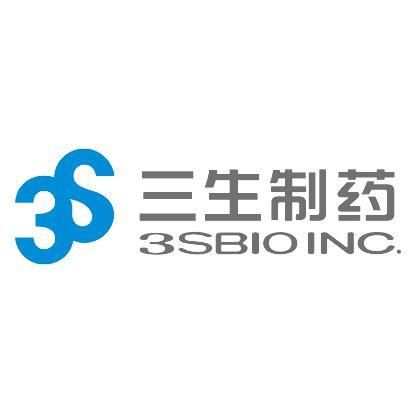预约演示
更新于:2025-05-07
Recombinant anti-IL-5 humanized monoclonal antibody(Sunshine Guojian Pharmaceutical (Shanghai) Co., Ltd.)
重组抗IL-5人源化单克隆抗体 (上海三生国健)
更新于:2025-05-07
概要
基本信息
原研机构 |
非在研机构- |
权益机构- |
最高研发阶段临床3期 |
首次获批日期- |
最高研发阶段(中国)临床3期 |
特殊审评- |
登录后查看时间轴
关联
11
项与 重组抗IL-5人源化单克隆抗体 (上海三生国健) 相关的临床试验CTR20244205
一项评价610治疗成人哮喘受试者的有效性和安全性的多中心、随机、双盲、安慰剂对照IIb期临床试验
主要目的:评价610皮下注射治疗哮喘受试者的有效性; 次要目的:评价610治疗哮喘受试者的安全性、药代动力学(PK)、药效动力学(PD)、免疫原性特征。
开始日期2024-12-13 |
申办/合作机构 |
NCT06680947
A Multicenter, Randomized, Double-blind, Placebo-controlled Phase IIb, Effcacy and Safety Study of Recombinant Anti-IL-5 Humanized Monoclonal Antibody Therapy in Adult Subjects With Severe Asthma
This study will assess the effcacy and safety of 610 as an adjunctive therapy in adult subjects with severe eosinophilic asthma.
开始日期2024-11-01 |
申办/合作机构 |
CTR20241581
一项评价610治疗成人哮喘受试者的有效性和安全性的多中心、随机、双盲、安慰剂对照Ⅲ期临床试验
主要目的:评价610皮下注射治疗哮喘受试者的有效性;
次要目的:评价610皮下注射治疗哮喘受试者的安全性、药效动力学(PD)、免疫原性特征。
开始日期2024-06-09 |
申办/合作机构 |
100 项与 重组抗IL-5人源化单克隆抗体 (上海三生国健) 相关的临床结果
登录后查看更多信息
100 项与 重组抗IL-5人源化单克隆抗体 (上海三生国健) 相关的转化医学
登录后查看更多信息
100 项与 重组抗IL-5人源化单克隆抗体 (上海三生国健) 相关的专利(医药)
登录后查看更多信息
2
项与 重组抗IL-5人源化单克隆抗体 (上海三生国健) 相关的文献(医药)2012-02-01·Current Opinion in Otolaryngology & Head & Neck Surgery3区 · 医学
the evidence
3区 · 医学
Review
作者: Adappa, Nithin D ; Palmer, James N ; Wei, Calvin C
2011-01-01·Proceedings of the Japan Academy, Series B3区 · 综合性期刊
Interleukin-5 and IL-5 receptor in health and diseases
3区 · 综合性期刊
Review
作者: TAKATSU, Kiyoshi
10
项与 重组抗IL-5人源化单克隆抗体 (上海三生国健) 相关的新闻(医药)2025-03-03
当地时间 3 月 3 日,葛兰素史克宣布,美国 FDA 已受理 Depemokimab(德莫奇单抗)用于两种适应症的生物制品许可申请。
拟定的适应症为:对于患有以嗜酸性粒细胞表型为特征的 2 型炎症的哮喘成人和 12 岁及以上的儿童患者,使用中至高剂量吸入皮质类固醇 (ICS) 加另一种哮喘控制药物进行辅助维持治疗,以及对于控制不佳的慢性鼻窦炎伴鼻息肉 (CRSwNP) 成人患者进行辅助维持治疗。PDUFA 日期为 2025 年 12 月 16 日。
截图来源:企业官网
Depemokimab 是一种靶向 IL-5 的单克隆抗体。IL-5 是 2 型炎症中的关键细胞因子(蛋白质)。2 型炎症通常通过血液嗜酸性粒细胞计数来识别,是许多疾病的潜在驱动因素。这种类型的炎症存在于大多数难以治疗的哮喘患者中,并可能导致病情恶化和住院治疗。多达 85% 的 CRSwNP 患者也存在 2 型炎症,并且与更严重的疾病和症状有关。
新闻稿指出,Depemokimab 是首个在 III 期试验中进行评估并接受监管审查用于治疗这些疾病的超长效生物制剂。如果获得批准,该药将成为首个给药周期为 6 个月的超长效生物药。
SWIFT-1 和 SWIFT-2 是为期 52 周的随机、双盲、安慰剂对照、平行分组、多中心研究 III 期临床试验。该试验评估了 Depemokimab 作为嗜酸性粒细胞哮喘患者辅助疗法的疗效和安全性。
ANCHOR-1 和 ANCHOR-2 是重复的 III 期临床试验,具有相同的主要和次要终点,旨在评估 Depemokimab 作为 CRSwNP 成人患者辅助治疗的安全性和有效性。
根据 SWIFT 和 ANCHOR 试验的结果,Depemokimab 的延长半衰期、高结合亲和力和效力支持六个月(26 周)的给药方案。对于患有 2 型炎症的哮喘患者和 CRSwNP 患者,这些试验达到了其主要终点,表明 Depemokimab 可以持续抑制其疾病的关键驱动因素,并通过每年仅注射两次的给药计划帮助实现关键的临床结果。
除了已报上市的两个适应症以外,Depemokimab 还被开发用于其他 IL-5 介导的疾病,包括用于治疗嗜酸性肉芽肿性多血管炎 (试验代号:EGPA) 的 OCEAN 和用于治疗嗜酸性粒细胞增多症 (试验代号:HES) 的 DESTINY。
Insight 数据库显示,全球共有 12 条 IL5/IL5R 单抗管线在研,其中本瑞利珠单抗(协和麒麟)、瑞替珠单抗(UCB/先灵葆雅)、美泊利珠单抗(GSK)已获批上市,GSK Depemokimab 正处于上市申请阶段。除此之外,进展较快的当属 恒瑞 SHR-1703 和三生国健 SSGJ-610,均处于临床 III 期阶段,且首发适应症均为嗜酸性粒细胞哮喘。
截图来源:企业官网
封面来源:企业 Logo
免责声明:本文仅作信息分享,不代表 Insight 立场和观点,也不作治疗方案推荐和介绍。如有需求,请咨询和联系正规医疗机构。
编辑:ccai
PR 稿对接:微信 insightxb
投稿:微信 insightxb;邮箱 insight@dxy.cn
多样化功能、可溯源数据……
Insight 数据库网页版等你体验
点击阅读原文,立刻解锁!
临床3期临床2期临床失败临床结果
2025-02-11
·药时空
2025年2月11日,据国家药品监督管理局药品审评中心显示,葛兰素史克(GSK)的美泊利珠单抗注射液的上市申请获受理,受理号为JXSS2500005和JXSS2500006。据推测,本次美泊利珠单抗申报上市的适应症可能为慢性阻塞性肺疾病(COPD)。针对该适应症,美泊利珠单抗尚未在全球范围内获得批准。
美泊利珠单抗(Mepolizumab)于2015年11月获FDA批准上市,是一种抗IL-5的人源化单克隆抗体,可阻断IL-5与嗜酸粒细胞表面上IL-5受体α链的相互作用,进而阻断IL-5对嗜酸性粒细胞等效应细胞的作用。白介素5(IL-5)主要由Th2细胞分泌,在嗜酸粒细胞的分化、成熟、黏附、浸润和凋亡过程中发挥极其重要的作用。IL-5与嗜酸粒细胞上的IL-5受体α亚基结合,使其βγ亚基的异二聚化,进而促进主导分化、存活、脱粒、黏附和募集等生物学过程的关键基因的表达,由此加剧嗜酸粒细胞气道炎症。
目前,美泊利珠单抗已在中国和美国获批多项适应症。其中,在中国获批的适应症包括成人嗜酸性肉芽肿性多血管炎、成人和12岁及以上青少年重度嗜酸粒细胞性哮喘、成人慢性鼻窦炎伴鼻息肉(该适应症刚于今年1月获批);在美国获批的适应症包括嗜酸性粒细胞哮喘、变应性肉芽肿血管炎、嗜酸性粒细胞性肉芽肿伴多血管炎(EGPA)、 嗜酸性粒细胞增多综合征和慢性鼻窦炎伴鼻息肉病。
说回COPD,该病是全球第三大死亡原因,全球超过3亿人受其影响。COPD患者体内存在慢性炎症,这会导致持续的呼吸困难和排痰性咳嗽等呼吸道症状。大约40%的COPD患者体内存在2型炎症,其特征是血嗜酸性粒细胞水平升高,患者的病情会因此恶化。目前,COPD患者的治疗以对症治疗为主,方案包括糖皮质激素、支气管扩张剂等,但许多患者的病情仍会继续恶化。2024年在欧盟获批的度普利尤单抗是COPD领域目前唯一一款生物靶向制剂。
在COPD治疗研究方面,GSK于2024年9月曾公布了美泊利珠单抗治疗COPD的III期MATINEE研究积极结果。该研究是一项为期52-104周的多中心、随机、双盲、安慰剂对照临床试验(n=806),评估了美泊利珠单抗(100mg,每4周1次,皮下注射)对比安慰剂作为疾病频繁恶化且血嗜酸性粒细胞水平升高的中度至重度COPD患者在维持治疗之外的附加治疗方案的有效性和安全性。研究的主要终点为中度至重度COPD的年恶化率。
研究结果显示,治疗104周后,美泊利珠单抗组患者的年恶化率低于安慰剂组,数据具有统计学意义和临床意义。此外,美泊利珠单抗的初步安全性结果与既往研究一致。
2024年12月,GSK宣布美国FDA接受美泊利珠单抗的新适应症上市申请,用于嗜酸性粒细胞型慢性阻塞性肺病 (COPD)患者的辅助维持治疗。此次提交的申请便是基于MATINEE研究的数据。若是成功获批,该药可能成为首个获批用于COPD患者每月给药的生物制剂。
值得注意的是,美泊利珠单抗是全球首款获批的IL-5靶向单抗,也是国内首个获批上市的IL-5靶向单抗。在国内市场,其有多个潜在竞争者,包括三生国健的SSGJ-610、恒瑞医药的SHR-1703,这两款药物均已进入III期临床阶段,此外,正大天晴和百奥泰还在积极开发美泊利珠单抗生物类似物。
至于在COPD适应症研究方面,国内企业康诺亚的IL-4Ra单抗司普奇拜单抗进入到临床试验中晚期阶段(II/III期),其他竞争对手还处于早期阶段。CPOD赛道未来发展如何,值得期待。
参考资料:
[1]国家药品监督管理局药品审评中心.
[2]只需每月一次皮下注射!GSK抗体新药新适应症在中国申报上市.医药观澜.2025年02月11日.
[3]哮喘生物治疗专题(六)——抗IL-5单抗美泊利珠单抗.中国医大一院呼吸慢病规范化管理.2024年10月07日.
[4]GSK「美泊利珠单抗」在国内获批新适应症.Insight数据库.2025年01月02日.
[5]慢阻肺病再现突破!GSK美泊利珠单抗III期研究成功.医药魔方.2024年09月07日.
[6]治疗 COPD!葛兰素史克 IL-5 单抗新适应症美国报上市.Insight数据库.2024年12月09日.[7]GSK、AZ、赛诺菲、罗氏......慢阻肺生物药诸强争霸.医药经济报.2024年09月20日.
识别微信二维码,可添加药时空小编
请注明:姓名+研究方向!
上市批准临床结果
2025-01-03
关注并星标CPHI制药在线
2025年1月2日,国家药品监督管理局(NMPA)官网发布消息,葛兰素史克(GSK)旗下美泊利珠单抗注射液(mepolizumab,Nucala)新适应症在国内获批准,推测该适应症为慢性鼻窦炎伴鼻息肉。美泊利珠单抗作为全球首个获批的IL-5靶向单抗,自2015年首次在美国获批上市以来,已在全球范围内展现了其卓越的治疗效果。
关于慢性鼻窦炎伴鼻息肉 |
慢性鼻窦炎伴鼻息肉(CRSwNP)是一种鼻道内壁或鼻窦的慢性炎症性疾病,通常表现为鼻道内软组织生长,即鼻息肉,且这些息肉往往以嗜酸性粒细胞水平升高为特征。该病不仅导致患者鼻塞、嗅觉丧失、面部疼痛和鼻涕等常见症状,还可能引发头痛、睡眠障碍和焦虑等严重问题。传统疗法对于CRSwNP的治疗主要包括鼻用糖皮质激素联合内镜鼻窦手术。然而,这些治疗方法存在诸多局限性。鼻用糖皮质激素虽然能够缓解炎症症状,但对于部分患者效果有限,且长期使用可能带来副作用。内镜鼻窦手术虽然能够直接切除鼻息肉,但术后复发率较高,尤其是对于病情严重的患者,可能需要多次手术。除了手术治疗外,部分患者还会接受全身性皮质类固醇治疗以控制炎症。然而,长期使用皮质类固醇可能导致一系列副作用,如骨质疏松、高血压、糖尿病等,严重影响患者的健康。
此外,随着对CRSwNP发病机制的深入研究,科学家们发现该病具有免疫异质性,不同患者的发病机制可能存在差异。因此,传统疗法往往难以达到理想的治疗效果,患者需要寻求更为有效的治疗手段。IL-5作为2型炎症通路的核心细胞因子,在嗜酸性粒细胞的生长、成熟、激活和存活过程中发挥着关键作用。因此,针对IL-5的靶向治疗成为慢性鼻窦炎伴鼻息肉治疗的新方向。
美泊利珠单抗注射液的作用机制和优势 |
美泊利珠单抗注射液是一种靶向IL-5的单克隆抗体,通过特异性结合IL-5受体复合物的α链,抑制IL-5的生物活性,从而减少嗜酸性粒细胞的增殖和存活。这一作用机制使得美泊利珠单抗在治疗由嗜酸性粒细胞增多引起的炎性疾病方面具有显著优势。
首先,美泊利珠单抗能够直接针对疾病的根源进行治疗,通过减少嗜酸性粒细胞的数量,减轻炎症反应,从而改善患者的症状。相比传统的糖皮质激素和支气管扩张剂等对症治疗药物,美泊利珠单抗具有更明确的治疗目标和更持久的疗效。
其次,美泊利珠单抗的安全性较高,副作用相对较少。虽然在使用过程中可能会出现过敏反应、病毒感染等不良反应,但整体而言,其安全性得到了广泛认可。此外,美泊利珠单抗的给药方式也相对便捷,通常采用皮下注射,方便患者在家中进行自我管理。
此外,美泊利珠单抗还具有广泛的应用前景。除了已获批的适应症外,其还在探索用于治疗其他与嗜酸性粒细胞增多相关的疾病,如慢性阻塞性肺病(COPD)等。这些研究有望为更多患者带来新的治疗选择。
美泊利珠单抗注射液安全性如何 |
美泊利珠单抗注射液在临床研究中表现出了显著的治疗效果。在针对慢性鼻窦炎伴鼻息肉的临床试验中,美泊利珠单抗治疗组患者的鼻息肉体积和鼻塞情况均得到了显著改善,与安慰剂组相比具有统计学意义。在关键SYNAPSE研究中,研究人员比较了美泊利单抗与安慰剂联合标准疗法在400多名CRSwNP患者中的疗效和安全性。这项研究是一项多中心、随机、双盲、安慰剂对照的临床试验,旨在评估美泊利珠单抗在CRSwNP患者中的治疗效果。
研究结果显示,治疗第52周时,与安慰剂组相比,美泊利单抗治疗组患者鼻息肉的体积和鼻塞情况均具有统计学意义上的显著改善。此外,与安慰剂组相比,美泊利单抗治疗组患者接受手术的比例降低了57%(HR=0.43)。除了手术比例的降低外,美泊利单抗还显著减少了患者在治疗期间需要使用全身性皮质类固醇的比例。这对于长期依赖皮质类固醇治疗的患者来说无疑是一个好消息,因为他们可以减少因长期使用皮质类固醇而带来的副作用。
此外,最新公布的美泊利单抗在日本、中国和俄罗斯CRSwNP患者中的III期MERIT临床结果也显示出了积极的治疗效果。与安慰剂相比,美泊利单抗显著改善了从基线到第49-52周的鼻塞VAS评分,并且与第52周时总体ENPS改善的趋势相关。这些临床数据充分证明了美泊利珠单抗在CRSwNP治疗中的有效性和安全性,为美泊利珠单抗在国内的获批上市提供了坚实的科学依据。
美泊利珠单抗注射液市场 |
据流行病学数据显示,中国慢性鼻窦炎的发病率约为13%,其中CRSwNP约占25%-30%,预计中国CRSwNP现有患者量大约为0.28-0.35亿。这一庞大的患者群体为美泊利珠单抗在国内市场的推广提供了广阔的空间。
目前,美泊利珠单抗已在全球范围内获得了广泛的认可和应用。根据GSK财报显示,美泊利珠单抗的全球销售额持续增长,2020年销售额为9.94亿英镑(约12.6亿美元),2021年销售额达到11.42亿英镑(约14.5亿美元)。在国内市场,美泊利珠单抗于2021年11月首次获批上市用于治疗成人嗜酸性肉芽肿性多血管炎,并于2024年1月获批扩展新适应症用于治疗嗜酸性粒细胞性重度哮喘。
在同类相关药物中,美泊利珠单抗是目前国内首个获批上市的IL-5靶向单抗。然而,随着生物制剂市场的不断发展,越来越多的企业开始加入到这一领域的竞争中来。据公开资料显示,国内已有多个潜在竞争者正在积极开发IL-5靶向单抗,如三生国健的SSGJ-610、恒瑞医药的SHR-1703等,这些药物均已进展到III期临床阶段。
此外,还有一些生物类似物正在积极开发中,如正大天晴和百奥泰的美泊利珠单抗生物类似物。这些竞品的出现无疑将加剧市场竞争,但同时也将推动整个行业的进步和发展。
值得注意的是,尽管面临诸多竞争,但美泊利珠单抗凭借其卓越的疗效和安全性,在市场中仍占据领先地位。未来,随着美泊利珠单抗在更多适应症中的获批和应用,其市场潜力将进一步释放。
结语 |
GSK的美泊利珠单抗注射液在国内获批新适应症,或为CRSwNP患者带来新的治疗选择和希望。作为一款靶向IL-5的单克隆抗体药物,美泊利珠单抗凭借其精准的治疗机制和显著的疗效,在抗炎治疗领域展现出了强大的竞争力。
参考文献:
[1] 国家药品监督管理局官网
[2] 葛兰素史克官网
END
来源:CPHI制药在线
声明:本文仅代表作者观点,并不代表制药在线立场。本网站内容仅出于传递更多信息之目的。如需转载,请务必注明文章来源和作者。
投稿邮箱:Kelly.Xiao@imsinoexpo.com
▼更多制药资讯,请关注CPHI制药在线▼
点击阅读原文,进入智药研习社~
上市批准
100 项与 重组抗IL-5人源化单克隆抗体 (上海三生国健) 相关的药物交易
登录后查看更多信息
研发状态
10 条进展最快的记录, 后查看更多信息
登录
| 适应症 | 最高研发状态 | 国家/地区 | 公司 | 日期 |
|---|---|---|---|---|
| 哮喘 | 临床3期 | - | 2024-04-01 | |
| 嗜酸性粒细胞性哮喘 | 临床3期 | - | 2024-04-01 | |
| 自身免疫性疾病 | 临床1期 | 中国 | 2022-01-30 | |
| 重度哮喘 | 临床1期 | 中国 | 2021-12-06 |
登录后查看更多信息
临床结果
临床结果
适应症
分期
评价
查看全部结果
| 研究 | 分期 | 人群特征 | 评价人数 | 分组 | 结果 | 评价 | 发布日期 |
|---|
No Data | |||||||
登录后查看更多信息
转化医学
使用我们的转化医学数据加速您的研究。
登录
或

药物交易
使用我们的药物交易数据加速您的研究。
登录
或

核心专利
使用我们的核心专利数据促进您的研究。
登录
或

临床分析
紧跟全球注册中心的最新临床试验。
登录
或

批准
利用最新的监管批准信息加速您的研究。
登录
或

生物类似药
生物类似药在不同国家/地区的竞争态势。请注意临床1/2期并入临床2期,临床2/3期并入临床3期
登录
或

特殊审评
只需点击几下即可了解关键药物信息。
登录
或

生物医药百科问答
全新生物医药AI Agent 覆盖科研全链路,让突破性发现快人一步
立即开始免费试用!
智慧芽新药情报库是智慧芽专为生命科学人士构建的基于AI的创新药情报平台,助您全方位提升您的研发与决策效率。
立即开始数据试用!
智慧芽新药库数据也通过智慧芽数据服务平台,以API或者数据包形式对外开放,助您更加充分利用智慧芽新药情报信息。
生物序列数据库
生物药研发创新
免费使用
化学结构数据库
小分子化药研发创新
免费使用

